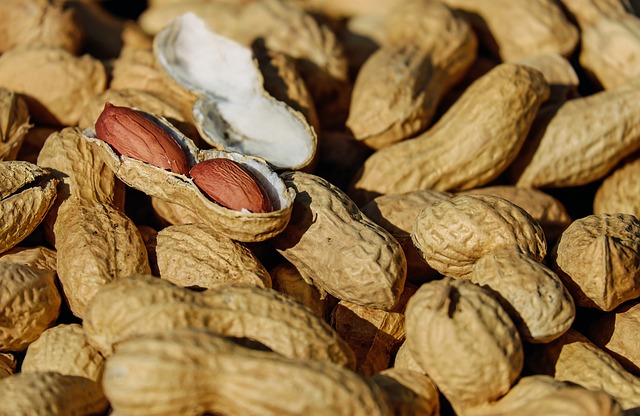In recent years, the number of nut allergies has skyrocketed. While the theories behind the specific origins for this spike are numerous and often controversial, the physiological effects are real and for many, potentially life-threatening. Due to the real need for clinical intervention, many researchers have been on the hunt to develop therapies that can prevent detrimental issues before they begin. Now, investigators from the Mary H. Weiser Food Allergy Center at the University of Michigan have released new findings that show that a therapeutic vaccine may successfully turn off peanut allergy in mice.
Findings from the new study—published today in the Journal of Allergy and Clinical Immunology through an article entitled “Nanoemulsion adjuvant–driven redirection of TH2 immunity inhibits allergic reactions in murine models of peanut allergy” showed that just three monthly doses of a nasal vaccine protected the mice from allergic reactions upon exposure to peanuts. Moreover, immunizing peanut allergic mice can redirect how immune cells responded to peanuts in allergic mice. This novel approach activates a different type of immune response that prevents allergic symptoms.
“We're changing the way the immune cells respond upon exposure to allergens,” explained lead study author Jessica O'Konek, Ph.D., a research investigator at the food allergy center. “Importantly, we can do this after an allergy is established, which provides for potential therapy of allergies in humans. By re-directing the immune responses, our vaccine not only suppresses the response but prevents the activation of cells that would initiate allergic reactions.”
In the current study, the mouse models responded to peanut allergies similarly to affected humans, with symptoms that included itchy skin and trouble breathing. The study assessed protection from allergic reactions two weeks after the final dose of vaccine was administered. Studies to determine the duration of protection are ongoing, but researchers are encouraged that this approach could lead to long-lasting suppression of allergies.
“The NE intranasal immunizations resulted in marked decreases in TH2 cytokine, IgG1, and IgE levels, whereas TH1 and mucosal TH17 immune responses were increased,” the authors wrote. “After allergen challenge, these mice showed significant reductions in allergic hypersensitivity. Additionally, the NE immunizations significantly increased antigen-specific IL-10 production and regulatory T-cell counts, and the protection induced by NE was dependent in part on IL-10. Control animals immunized with intranasal peanut in saline had no modulation of their allergic response.”
The findings are another step toward a potential clinical trial down the road to test the method in humans. The next steps include further studies in mice to better understand the mechanisms responsible for the suppression of food allergies and learn whether protection from peanut allergies can be extended for an even longer period.
“Right now, the only FDA approved way to address food allergy is to avoid the food or suppress allergic reactions after they have already started,” Dr. O'Konek noted. “Our goal is to use immunotherapy to change the immune system's response by developing a therapeutic vaccine for food allergies.”
“Food allergy has exploded in prevalence and incidence, but we still know so little about it because there hasn't been that much research in the field,” added senior study investigator James Baker Jr., M.D., director of the U-M Mary H. Weiser Food Allergy Center and who is also the CEO of Food Allergy Research and Education (FARE).
“This research is also teaching us more about how food allergies develop and the science behind what needs to change in the immune system to treat them,” Dr. Baker concluded.


